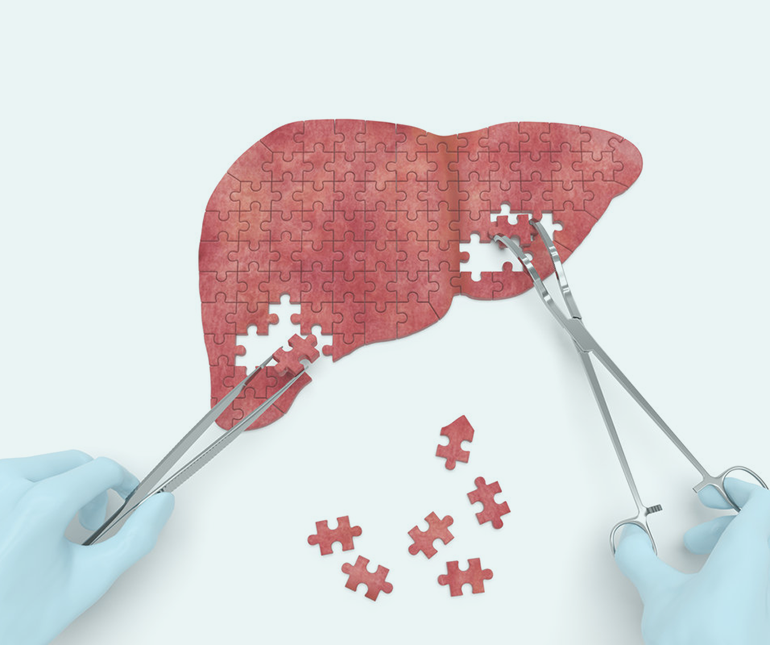Liver surgery

A Prominent consulting Surgeon across the western suburbs of Mumbai, Dr. Hitesh Arora has spent 15 years in the service of medicine.
The liver is an organ about the size of a football. It sits just under your rib cage on the right side of your abdomen. The liver is essential for digesting food and ridding your body of toxic substances.
Liver disease can be inherited (genetic). Liver problems can also be caused by a variety of factors that damage the liver, such as viruses, alcohol use and obesity.
Over time, conditions that damage the liver can lead to scarring (cirrhosis), which can lead to liver failure, a life-threatening condition. But early treatment may give the liver time to heal.
Symptoms
Liver disease doesn't always cause noticeable signs and symptoms. If signs and symptoms of liver disease do occur, they may include:
1. Skin and eyes that appear yellowish (jaundice)
2. Abdominal pain and swelling
3. Swelling in the legs and ankles
4. Itchy skin
5. Dark urine colour
6. Pale stool colour
7. Chronic fatigue
8. Nausea or vomiting
9. Loss of appetite
10.Tendency to bruise easily
Causes
Liver disease has many causes.
Prevention
To prevent liver disease:
Drink alcohol in moderation. For healthy adults, that means up to one drink a day for women and up to two drinks a day for men. Heavy or high-risk drinking is defined as more than eight drinks a week for women and more than 15 drinks a week for men. (as such state of Gujarat is having prohibition and ban over drinking alcohol)
Avoid risky behaviour. Use a condom during sex. If you choose to have tattoos or body piercings, be picky about cleanliness and safety when selecting a shop. Seek help if you use illicit intravenous drugs, and don't share needles to inject drugs.
Get vaccinated. If you're at increased risk of contracting hepatitis or if you've already been infected with any form of the hepatitis virus, talk to your doctor about getting the hepatitis A and hepatitis B vaccines.
Use medications wisely. Take prescription and non-prescription drugs only when needed and only in recommended doses. Don't mix medications and alcohol. Talk to your doctor before mixing herbal supplements or prescription or non-prescription drugs.
Avoid contact with other people's blood and body fluids. Hepatitis viruses can be spread by accidental needle sticks or improper clean-up of blood or body fluids.
Keep your food safe. Wash your hands thoroughly before eating or preparing foods. If traveling in a developing country, use bottled water to drink, wash your hands and brush your teeth.
Take care with aerosol sprays. Make sure to use these products in a well-ventilated area, and wear a mask when spraying insecticides, fungicides, paint and other toxic chemicals. Always follow the manufacturer's instructions.
Protect your skin. When using insecticides and other toxic chemicals, wear gloves, long sleeves, a hat and a mask so that chemicals aren't absorbed through your skin.
Maintain a healthy weight. Obesity can cause nonalcoholic fatty liver disease.
Overview of LFT- Liver function tests.
Liver function tests are blood tests used to help diagnose and monitor liver disease or damage. The tests measure the levels of certain enzymes and proteins in your blood.
Some of these tests measure how well the liver is performing its normal functions of producing protein and clearing bilirubin, a blood waste product. Other liver function tests measure enzymes that liver cells release in response to damage or disease.